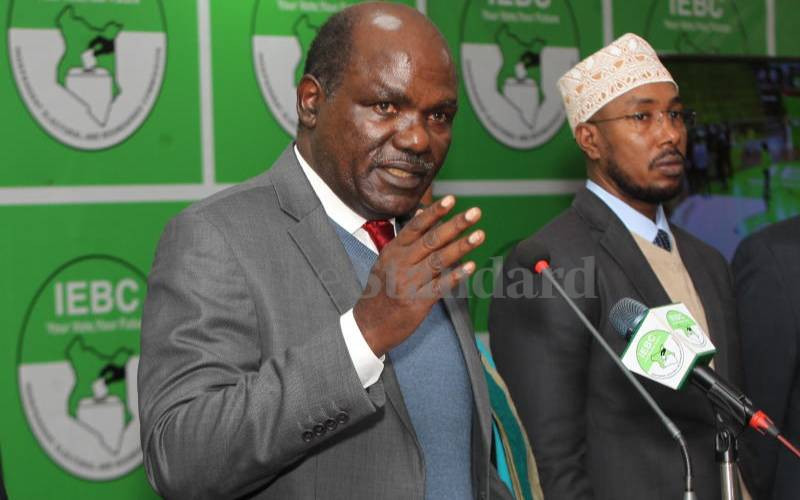×
The Standard e-Paper
Home To Bold Columnists

On Monday, four Independent Electoral and Boundaries Commission (IEBC) disowned chairman Wafula Chebukati's declaration of William Ruto as the president-elect.
The majority commissioners' dissent now has split legal minds on its implication.